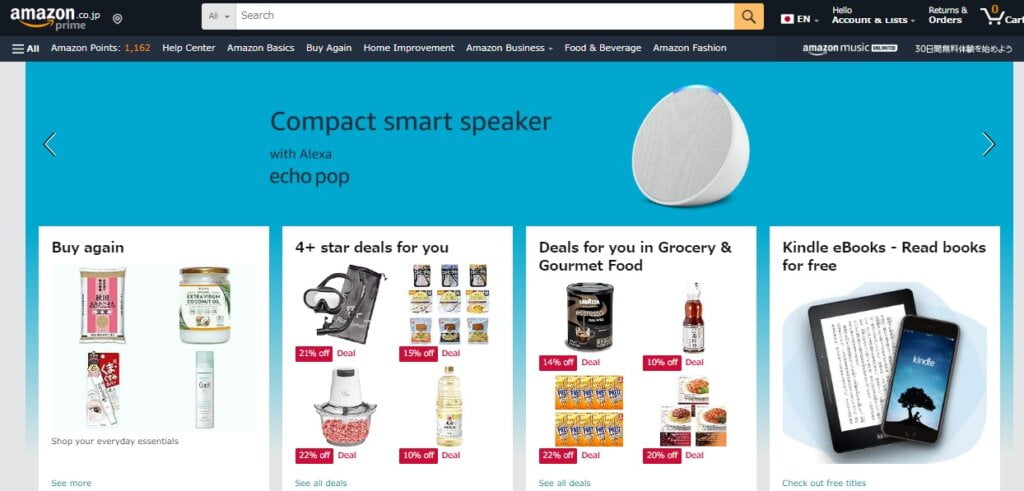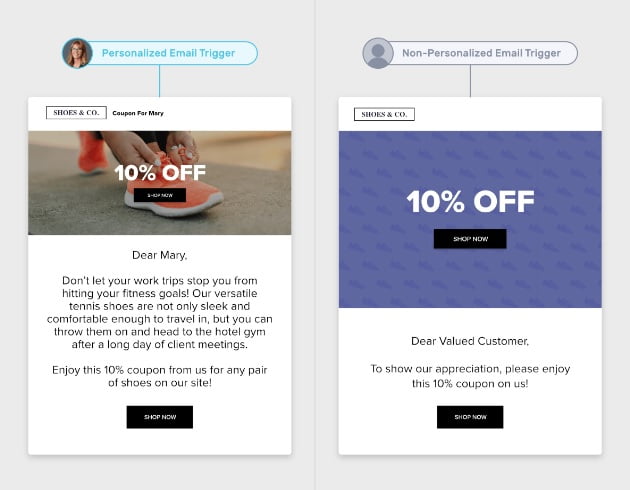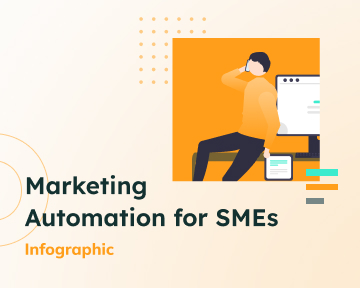One of the most influential trends that has emerged in recent years and is showing no signs of slowing down is personalisation. This marketing strategy is a game-changer, allowing businesses to connect with their customers on a deeper level, create meaningful interactions, and ultimately, drive growth. In this blog post, we’ll explore the significance of personalisation as a marketing trend and why it’s a must for businesses looking to thrive in the modern landscape
Personalisation in marketing refers to tailoring your brand’s messaging, products, and services to meet the unique needs and preferences of individual customers. It involves gathering data, analysing consumer behaviour, and using that information to craft highly relevant and personalised experiences. Implementation of personalisation in communication with potential clients requires specialised software tools. One of the most common types is Marketing Automation and CRM softwares. This approach stands in stark contrast to the traditional one-size-fits-all marketing strategies of the past.
Did you know?
76% of buyers expect more personalised attention to develop a close trustful relationship with the brand.
83% of customers are willing to share their data to create a more customised experience.
Source: Constant Contact, 2023
Here are a few reasons why personalisation has become a key marketing trend to watch out for.
1. Customer Expectations Have Evolved
In the age of Amazon and Netflix, consumers have grown accustomed to personalised recommendations and experiences. They now expect the same level of personalisation from all the brands they interact with. Ignoring these expectations can seriously damage your conversion rates in short terms and competitiveness in the long run.
2. Data-Driven Insights
Advances in data collection and analysis tools have made it easier for businesses to understand their customers at the closest proximity as never before. Leveraging these insights is crucial in your personalisation efforts.
3. Increased Engagement
Personalisation fosters a deeper connection with your audience. By leveraging available data on customer behaviour and characteristics, businesses now can showcase their products and services in a more relevant context and form.This, in turn, leads to increased engagement and brand loyalty.
4. Improved ROI
Personalised marketing campaigns often yield better returns on investment because they are more effective at converting leads into customers and retaining existing ones.
Did you know?
Brands experience a 10% increase of response rate when using advanced personalisation in emails.
Source: SERP Watch, 2023
Personalisation in Action
To better understand the power of personalisation, let’s look at a few common examples of personalisation applications on different platforms.
1. E-commerce
E-commerce personalisation is aiming for customised online shopping interactions for each individual customer. This is achieved by presenting relevant product suggestions, and promotional deals that align with their preferences, actions, and demographic data.


2. Email Marketing
Every successful brand today incorporates email personalisation to some extent. As a bare minimum to incorporate personalisation, you can add simple touches to your emails, like addressing the recipient by name and tailoring content based on past behaviour can significantly increase open and click-through rates. However, higher levels of efficiency are shown when such personalisation is combined with customer segmentation. It can help you to send campaigns with relevant content. And if you use Marketing Automation and CRM tools such as Constant Contact’s Lead Gen & CRM, you will be able to use Dynamic Content, a function that enables you to communicate the same personalised message on different platforms based on the persona of your lead.
3. Customisation of Search Results, and Search Ads
Through personalisation, search engines delivers results that are customised to the user based on account online activity. Variations in search results between users can also happen due to settings other than personalisation, such as language preferences or location.
If you are in the B2B industry, then you may want to read more about this marketing strategy that is accelerating its popularity in B2B and is heavily based on personalisation.
Challenges in Personalisation
While personalisation is a powerful marketing trend, its development does face its own challenges. Privacy concerns, data security, and the ethical use of customer data are all critical issues that businesses must navigate. Ensure that if you are to use these data points in your personalised marketing content, you have the permission to do so from the lead itself. This should be pointed out in your terms and conditions or part of your privacy policy. Striking the right balance between personalisation and privacy is essential to building and maintaining trust with your audience.
Conclusion
In an era where consumers are overloaded with marketing messages, personalisation stands out as a vital strategy for businesses. It is no longer about quantity, but instead quality of your contents. It’s more than just a trend, it’s a paradigm shift in how businesses interact with their customers. By harnessing the power of data-driven insights, brands can create deeply personalised experiences that resonate with their target audience and drive business growth.
As personalisation continues to evolve and mature, businesses that embrace this marketing trend will be well-positioned to thrive in an increasingly competitive marketplace. The future of marketing is in personalisation, and the businesses that recognise this and adapt to it will be the ones that win the hearts and wallets of their customers.
What's next for you?
As mentioned above, implementing personalisation seamlessly and effortlessly into your marketing strategy usually requires the use of a software that can collect, track and analyse data about leads. Contact our team at “Lead Gen and CRM” by Constant Contact to understand how personalisation and tailored approach can elevate outcomes of your business.






